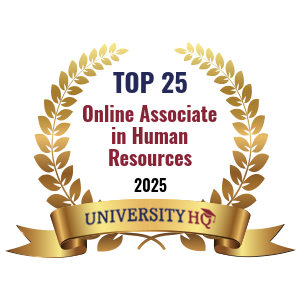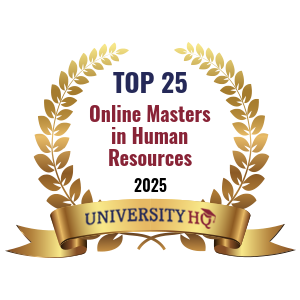Understanding Human Resources
Exploring human resources involves grasping the essential duties and systems managing human capital within organizations. You will learn about the significant role HR plays and the tools they use to enhance workplace effectiveness.
Role and Importance of HR in Organizations
Human resources hold a crucial position in any organization as they manage the entire employee lifecycle. You rely on HR for tasks like screening, recruiting, and training, which are vital for building a competent workforce.
They coordinate with other departments to ensure alignment with the organization's mission and values. HR professionals also handle employee relations, managing disputes, and fostering a positive work environment which enhances productivity.
Understanding HR's strategic role, HR is integral to a company’s success, driving growth through efficient management of human capital.
Human Resources Management Systems and HR Analytics
Modern HR relies heavily on technology, specifically Human Resource Management Systems (HRMS) and HR Analytics. These systems help automate various HR functions, such as payroll, benefits administration, and performance management. You benefit from an HRMS through streamlined processes and data management that increase efficiency and accuracy.
HR Analytics plays a critical role in assessing organizational behavior by collecting and analyzing data to provide insights into areas like employee retention and satisfaction.
Through these tools, HR can make data-driven decisions that support strategic planning and operational improvements, maximizing both human potential and organizational success.
Education and Degrees in Human Resources
When pursuing a career in human resources, it's essential to choose the right educational path. From associate degrees to advanced programs, each offers unique opportunities and challenges. Explore the paths available and discover how different degrees can shape your HR career.
Associate Degree in Human Resources
Starting with an associate degree in human resources, you can gain foundational knowledge about HR principles, making it a cost-effective way to enter the field. These programs typically take two years and focus on basic HR practices, labor laws, and organizational behavior. They can be a steppingstone for further study or entry-level HR positions.
Bachelor’s Degree in Human Resources
Progressing to a bachelor’s degree in human resources is a common step for individuals seeking more comprehensive education. This degree usually spans four years, covering advanced topics like strategic human resource planning, employee relations, and business communication. A bachelor’s degree often leads to higher-level positions and is frequently a requirement for professional HR roles. You can choose to take a faster option to earn your degree in human resources with an accelerated program.
Master’s Degree in Human Resources
Some may choose to advance further with a master's degree in human resources management or an MBA with a concentration in human resources, enhancing their expertise and opening doors to leadership positions. These programs dive into specialized HR fields, such as compensation management or HR technology, providing in-depth training for complex HR challenges.
Career Opportunities in Human Resources for Graduates
Human resources offer a variety of career paths, each with unique roles and growth potential. From overseeing employee relations to managing corporate policies, there is a wide range of opportunities that cater to different skills and interests.
Roles and Positions Within HR
In the field of HR, you have options ranging from generalists to specialists. As an HR Generalist, you manage various tasks, effectively becoming a jack-of-all-trades. HR Specialists focus on areas such as recruitment, training, or benefits management.
HR Managers typically oversee strategic planning and implementation policies, while HR Directors work on aligning HR functions with business goals.
For entry-level positions, roles like HR Assistant or HR Coordinator are common. These positions offer critical experience in tasks such as employee onboarding and benefits analysis. Advanced positions may include HR Analyst or HR Consultant, which involve strategizing to improve company performance.
Exploring these diverse roles can give you a sense of what direction you might want to take in your HR career.
Job Satisfaction and Career Growth
A career in HR can offer substantial job satisfaction, especially for those who enjoy working with people and solving organizational challenges. You can find fulfillment in helping employees navigate challenges and ensuring compliance with employment laws.
Data shows the job outlook for HR roles is promising, with growth expected across various positions and levels.
Career growth can be achieved by pursuing further education, like a master's degree in HR or certifications like SHRM or PHR. Continuing education opens opportunities for higher-level roles such as HR Director or VP of Human Resources.
Explore how a degree can enhance your career prospects in HR careers.
How Human Resources Recruitment and Talent Acquisition Works
Recruitment and talent acquisition are crucial elements of human resources, involving strategic methods for attracting and hiring top candidates. Both concepts emphasize aligning staffing needs with business objectives through innovative approaches.
Effective Recruiting Strategies
To achieve success in recruiting, it's essential to implement a mix of strategies tailored to your organization's unique needs.
Emphasize a strong employer brand to attract potential candidates and ensure it reflects your company culture and values. Social media platforms are valuable in reaching a broader audience.
Consider using employee referral programs, which often result in high-quality hires. Networking at industry events can also facilitate direct connections with potential candidates.
Additionally, engaging passive candidates is vital—these individuals may not actively seek new opportunities but possess desirable skills. Offering appealing career development opportunities can convince them to join your team.
The Role of Technology in Modern Recruitment
Technology radically transforms recruitment, making processes more efficient and data-driven.
Applicant tracking systems (ATS) streamline the hiring process by organizing applications and tracking candidates. Artificial intelligence (AI) tools enhance candidate matching by analyzing qualifications against job requirements.
Virtual reality (VR) is emerging as a tool for immersive job previews and interviews. Social media platforms not only widen your reach but also enable targeted recruiting through detailed analytics.
Furthermore, video interviewing software provides flexibility and saves time for both recruiters and candidates.
These technological advances aid talent acquisition specialists in making informed decisions, improving candidate experiences, and reducing time-to-hire.
Training and Development
Focusing on professional certifications and designing employee development programs can significantly enhance both individual and organizational growth. Structured training fosters an environment of continual learning and skills enhancement.
Professional Certifications and Skills Advancement
Professional human resources certifications are crucial for equipping HR professionals with current expertise. They provide credibility and demonstrate your commitment to ongoing skills advancement.
Engaging in certification programs allows you to stay updated with industry standards and practices. These programs often cover topics like organizational development, employment law, and performance management.
Consider programs like SHRM-CP or PHR, which are recognized globally. They help you gain insights into real-world HR challenges through projects and case studies.
Such credentials can significantly enhance your career prospects, positioning you as a proficient HR practitioner.
Designing Employee Development Programs
Crafting effective employee development programs is essential for optimizing performance. A well-designed program enhances employee skills and aligns with organizational goals.
Start by identifying gaps through assessments and feedback. Tailor your program to address these areas using methods like workshops, online courses, or on-the-job training.
Implementing diverse learning strategies accommodates different learning preferences. Encourage a culture of learning and development by promoting ongoing training sessions.
It’s vital to evaluate the impact of these programs regularly and adjust them to meet evolving business needs.
Enhanced employee skills lead to improved job performance, helping retain talent and increasing organizational success.
Compensation, Benefits, and Employment Law
Understanding the intricacies of employee compensation and benefits is crucial in Human Resources. Equally important is staying compliant with employment laws. This section delves into these facets, offering insights into structuring effective compensation packages and navigating the legal landscape in HR.
Structuring Compensation Packages
Creating a compensation package involves balancing salary, health insurance, and retirement plans. You’ll want to ensure competitive salaries to attract talent.
Benefits like health insurance and retirement plans are vital for employee satisfaction. Health insurance options should cover medical, dental, and vision needs. Retirement plans often include 401(k) matches, which are highly valued by employees.
Consider using a table to outline the benefits offered versus industry standards. Regularly review these packages to stay competitive and compliant with labor laws.
Navigating Legal Considerations in HR
Employment laws are essential to maintaining a fair workplace. Key aspects include anti-discrimination policies, wage and hour laws, and health and safety regulations.
Familiarize yourself with federal labor laws, such as the Fair Labor Standards Act, which governs minimum wage and overtime. You should also consider local regulations, as they can vary significantly.
Staying informed about changes in employment law is crucial. Consulting with a legal expert or subscribing to reputable HR resources can ensure compliance.
Being proactive in legal matters can save your organization from costly litigation.
Employee Relations and Workplace Environment
Creating a positive workplace culture requires a focus on employee relations and a commitment to resolving conflicts and promoting diversity. Understanding how to handle conflicts and support inclusivity can significantly enhance employee engagement and the overall employee experience.
Addressing and Resolving Conflict
Effectively addressing and resolving conflict is essential in maintaining a harmonious work environment.
You should implement clear policies and procedures for conflict resolution. Encourage open communication and provide employees with formal channels to voice concerns about workplace disagreements or employee grievances.
Training managers to handle disputes impartially is crucial. Equip them with conflict resolution skills, such as active listening and empathy, to ensure fair mediation.
Promptly addressing issues prevents escalation and reinforces trust within your team. Regular feedback sessions can also prevent misunderstandings and keep potential conflicts in check.
By prioritizing these steps, you will bolster employee engagement and foster a supportive company culture.
Fostering Diversity and Inclusion
Promoting diversity and inclusion enriches your company culture by welcoming varied perspectives and backgrounds. To cultivate an inclusive workplace, establish comprehensive policies and training on discrimination and bias prevention.
Encourage employee participation in creating initiatives that celebrate diversity.
Create employee resource groups to support underrepresented groups and provide platforms for discussing challenges and successes.
Additionally, fostering diversity involves equitable hiring and career advancement practices. Evaluate and update recruitment processes to eliminate unconscious bias.
Implement feedback mechanisms to measure the effectiveness of your inclusivity efforts.
Prioritizing diversity and inclusion enhance the employee experience and contributes to a more dynamic and innovative work environment. By valuing diverse voices, you can improve collaboration and drive organizational success.
State-By-State Human Resources College Rankings
Select a State to Search Colleges & Universities

- Select a State
-
- Alabama
- Alaska
- Arizona
- Arkansas
- California
- Colorado
- Connecticut
- Delaware
- District of Columbia
- Florida
- Georgia
- Hawaii
- Idaho
- Illinois
- Indiana
- Iowa
- Kansas
- Kentucky
- Louisiana
- Maine
- Maryland
- Massachusetts
- Michigan
- Minnesota
- Mississippi
- Missouri
- Montana
- Nebraska
- Nevada
- New Hampshire
- New Jersey
- New Mexico
- New York
- North Carolina
- North Dakota
- Ohio
- Oklahoma
- Oregon
- Pennsylvania
- Rhode Island
- South Carolina
- South Dakota
- Tennessee
- Texas
- Utah
- Vermont
- Virginia
- Washington
- West Virginia
- Wisconsin
- Wyoming



